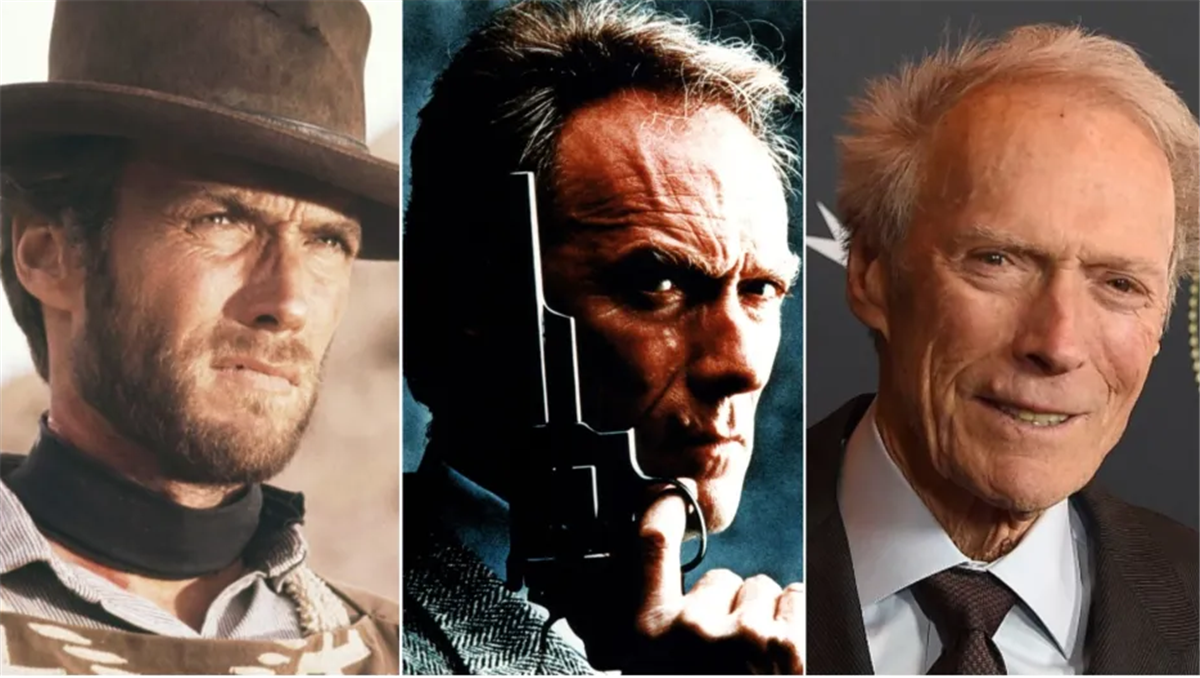Over his decades-long career, Eastwood has been the cowboy, rebel, haunted, and curmudgeon.
If it seems like Clint Eastwood has graced Hollywood screens for an eternity, that’s not all that far off. Eastwood has been in films since his uncredited role in 1955’s Revenge of the Creature at the tender age of twenty-five. Often cast in the role of the outsider, he embodies a certain coolness that comes across effortlessly. From well-known films like Dirty Harry to underrated films like A Perfect World, Eastwood’s done them all. What is particularly interesting about his filmography is how, for the most part, his roles can be grouped into four distinctive periods: The Cowboy Era, The Rebel Era, The Haunted Era, and The Curmudgeon Era. There are exceptions, of course, like 1971’s thriller and Eastwood directorial debut Play Misty For Me, a film that falls right in between the Cowboy and Rebel eras without being a fit in either. Overall, though, the observation is true, four stages of a career, which has not only outlasted many of his peers but continues to enchant audiences world-wide.
The Cowboy Era
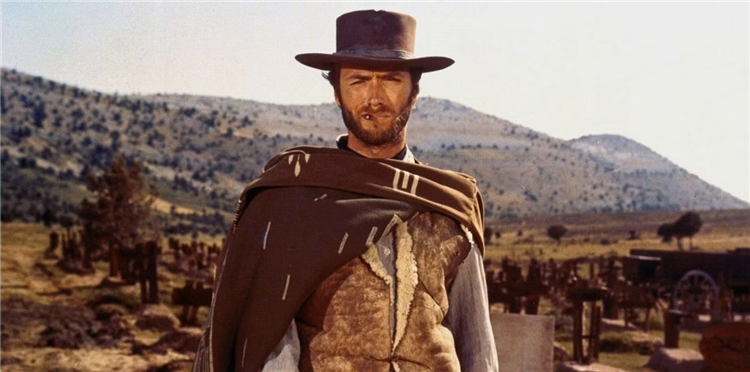
Prior to 1959, Eastwood’s film career was filled with a number of uncredited or minor roles, like ‘Jet Squadron Leader’ in the movie Tarantula. That all changed with the TV series Rawhide, where he had a lead role as Rowdy Yates, cowhand and right-hand man to Gil Favor (Eric Fleming). Rawhide told the story of a cattle drive from San Antonio, Texas, to Sedalia, Missouri, and all the adventures of the crew in between. Eastwood would be the only cast member to appear in all 217 episodes of the successful show, which ended in 1965. From there to 1970, the bulk of Eastwood’s work was in westerns, none bigger and more iconic than his role as ‘The Man With No Name’ in Sergio Leone‘s spaghetti western Dollars Trilogy, consisting of A Fistful of Dollars, For a Few Dollars More and The Good, The Bad and The Ugly. Mysterious, unflappable, sly, and instantly memorable, it’s the role that propelled Eastwood into movie stardom: the perfect storm of story, director and actor clicking as one.
1968’s Hang ‘Em High saw Eastwood portray Jed Cooper, an innocent man accused of cattle rustling and murder by a lynch mob, who hang Cooper and leave him to die. Cooper survives the encounter, though, and returns to his former profession as a lawman. His first mission – hunt down the vigilantes that lynched him and bring them to justice (making the movie somewhat atypical, a quest for revenge that involves bringing the wrongdoers in to face justice, as opposed to simply gunning them down). The era also included Eastwood’s first, and only, acting role in a Hollywood musical, 1969’s Paint Your Wagon, as Sylvester ‘Pardner’ Newel, who teams up with farmer Ben Rumson (Lee Marvin). They stake a claim and build a mining camp in the wilds of California during the Gold Rush after finding gold dust whilst burying Padner’s dead brother. The movie is far more memorable for its pairing of Eastwood and Marvin, two western legends, than it is for the singing abilities of the leads. Eastwood wouldn’t totally abandon the musical genre, however: he directed Jersey Boys, the 2014 musical drama based on the Tony-winning stage musical about Frankie Valli & The Four Seasons.
The clear end of the era is 1970’s Two Mules for Sister Sara, where Eastwood plays Hogan, a man on reconnaissance for a mission to capture a French fort. On the way, he comes to the aid of nun Sister Sara (Shirley MacLaine), who is on the run from the French (and not forthcoming on why she is being pursued). She needs his help, and he needs her information on the fort, so they help one another and become good friends in the process. It wasn’t Eastwood’s final western – Sara was followed a few years later by High Plains Drifter and The Outlaw Josey Wales, the only two westerns of note until he revisited the west with 1992s Unforgiven – but it was the point where his roles became more contemporary.
The Rebel Era
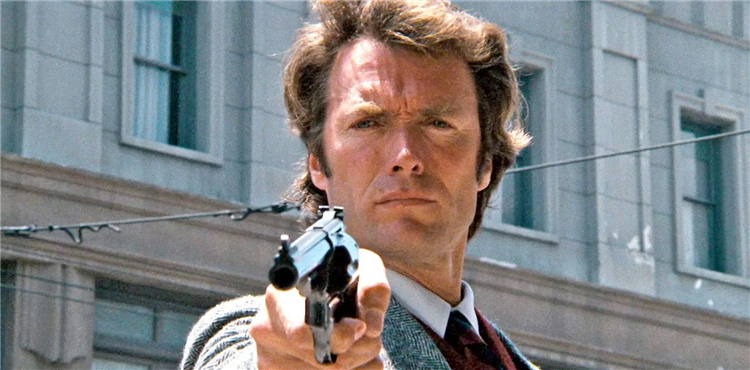
Clint Eastwood’s Rebel Era isn’t all that different from the Cowboy Era, truth be told. Swap out the cowboy hat and western gear for modern clothing, and the horse for a Ford Galaxie 500. But if we define rebel as one who opposes authority, then the era becomes that much more distinctive: the age of the western loner, meting out justice versus the modern, urban anti-hero. The Rebel Era begins with Eastwood’s infamous Detective Harry Callahan in 1971’s Dirty Harry, the no-nonsense cop who pushes the limits, argues with superiors, and disobeys orders, anything he can to stop the maniacal psychopath who is terrorizing San Francisco: The Scorpio Killer (Andrew Robinson). There is no more telling evidence that the Rebel Era had begun than Callahan throwing his badge away after taking out the killer. The era would end with Detective Harry Callahan, again, in Sudden Impact, the 1983 film that would be Eastwood’s second-last appearance as the detective.
In between the two, Eastwood brought a number of other rebels to the screen, including two additional Dirty Harry films: Magnum Force and The Enforcer (which co-starred a pre-Cagney & Lacey Tyne Daly). In Thunderbolt and Lightfoot he plays Thunderbolt, a bank robber who gathers his old gang back together to pull off a repeat of the heist that ended unsuccessfully seven years prior. As Detective Ben Shockley, Eastwood is instructed to bring Gus Mally (Sondra Locke), a prostitute, to testify at a mob trial in 1977’s The Gauntlet. it’s a task that’s easier said than done, as he is betrayed by someone in the Police Department. Refusing to roll over, he welds thick steel plates to a bus and carries out his assignment by driving through a barrage of firepower (the gauntlet of the title) to the courthouse. The action comedies Every Which Way But Loose and Any Which Way You Can follow the adventures of Eastwood’s Philo Beddoe, truck driver and prizefighter, and his pet orangutan Clyde (fact: non-rebels don’t have orangutans as pets). Finally, Eastwood stars as Frank Morris, the true story of an inmate at Alcatraz who masterminds a highly detailed escape attempt, along with brothers Clarence (Jack Thibeau
The Haunted Era
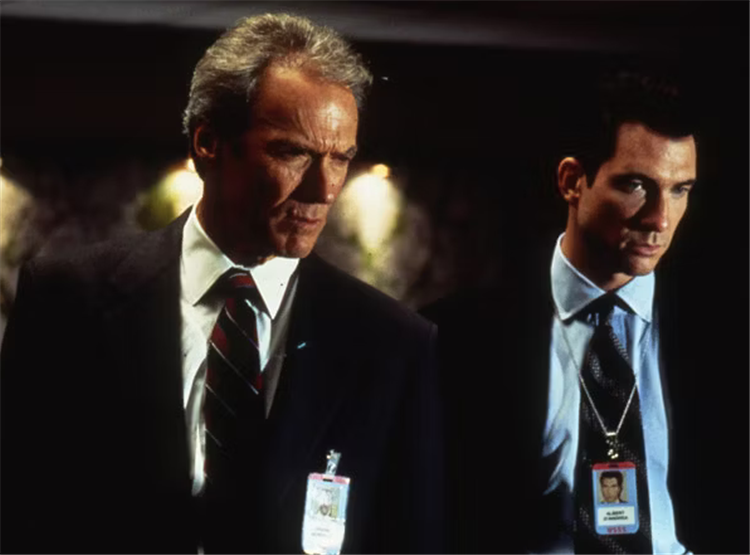
In 1982, the Haunted Era began with the Cold War film Firefox, starring Eastwood as Mitchell Gant, an ex-Vietnam War pilot on a covert mission into the U.S.S.R. to steal a prototype jet. Throughout the film, Gant is haunted by his Post Traumatic Stress Disorder, which threatens to blow his cover and bring the mission to a crushing halt. A number of his films during this time featured a character that is haunted, like Gant, by something outside of their control.
In 1984’s Tightrope, Eastwood is on the trail of a serial killer as Detective Wes Block. As he draws closer to catching the killer, the killer begins targeting acquaintances of Block’s, including his daughters, deeply troubling the detective. White Hunter Black Heart cast Eastwood as John Wilson, world-famous director, who travels with his crew to Africa in order to film his latest movie. His interest in the movie, and those involved, becomes secondary as he grows fixated on hunting elephants, and one in particular that eludes him. Nick Pulovski, Eastwood, is a cop that is assigned a new partner after his previous partner is killed by the leader of a car theft/chop shop ring in the 1990 film The Rookie. The case is moved to the homicide department, and as a result Pulovski is taken off of it. Pulovski, however, insists on stopping the man, feeling he owes it to his deceased partner. His new partner, David Ackerman (Charlie Sheen), is dragged into Pulovski’s obsessive pursuit as a result. In the Oscar-winning film Unforgiven, Eastwood makes a successful return to his western roots as former outlaw William Munny, who is hired to help capture a bounty on the heads of those that horribly disfigured prostitute Delilah Fitzgerald (Anna Thomson). As the pursuit draws nearer to its end, Munny is hounded by the dangerous world he had left behind years before.
The Haunted Era would end with Eastwood’s turn as Secret Service agent Frank Horrigan in the 1993 film In The Line of Fire. Plagued by his inability to stop the assassination of John F. Kennedy, he is taunted by former assassin Mitch Leary (John Malkovich) into stopping Leary’s attempt to assassinate the current president. His past drives Horrigan’s need to find Leary before it’s too late, spooking him into believing danger lies around every corner.
The Curmudgeon Era
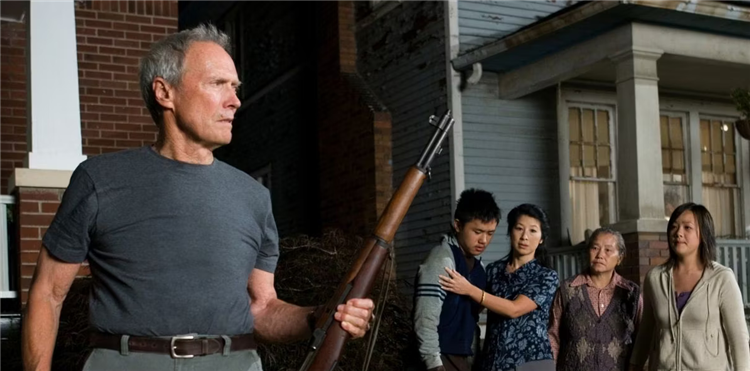
The current stage of Eastwood’s career is the Curmudgeon Era, where the bulk of his roles have found the renowned actor in varying degrees of feeble, grouchy, hardened, and elderly. 2000’s Space Cowboys kicks off this era, featuring Eastwood as former Air Force pilot Frank Corvin, whose opportunity to go into space with his team was scuttled by N.A.S.A.’s Bob Gerson (James Cromwell) forty years ago. A Russian satellite has veered off course, and Corvin, who designed its guidance system, is pressed back into service with his former team (consisting of fellow elders Tommy Lee Jones, Donald Sutherland and James Garner) to fix it before it enters the atmosphere.
In Blood Work, Eastwood is retired F.B.I. profiler Terry McCaleb, the successful recipient of a heart transplant, who is hired to find the killer of his heart donor. In his pursuit, he comes to realize the killer to be the serial killer he had fruitlessly chased for years, but the limitations of his age and health hinder his abilities. In 2004, multiple Oscar winner Million Dollar Baby starred Hilary Swank as aspiring female boxer Maggie Fitzgerald, who eventually talks gruff, elderly boxing trainer Frankie Dunn (Clint Eastwood) into training her. As her career takes off, the two grow a deep friendship until an unfortunate accident leads to a soul-crushing end. Gran Torino in 2008 cast Eastwood as malcontent Korean War veteran Walt Kowalski, a deeply unhappy man who doesn’t get along with anyone. When teenage neighbor Thao Lor (Bee Vang) tries to steal Kowalski’s prized 1972 Gran Torino, he takes it upon himself to reform the young man, eventually stepping up to protect Lor and his family from gangs.
Another variant of the aged, stubborn crank is Eastwood’s role as baseball scout Gus Lobel in 2012’s Trouble with the Curve. With one last opportunity to scout for his team, Lobel heads to North Carolina. His estranged daughter Mickey (Amy Adams) follows along to make sure he’s alright, and in doing so pushes him to explain why he pushed her away so many years ago. Eastwood’s most recent addition to the Curmudgeon Era is in 2021’s Cry Macho. He plays Mike Milo, a one-time rodeo star and former horse breeder, entrusted to bring the son of an ex-boss home, away from his alcoholic mother. Set in 1978, the weary horseman and the boy take a challenging journey back to Texas through rural Mexico, where Milo starts finding purpose again as he teaches Rafael (Eduardo Minett) what it means to be a good man.
Clint Eastwood – cowboy, rebel, haunted, curmudgeon, and more – has a legacy that cements his place as a Hollywood icon. Even at 92, he continues to excel in the cinematic world he has thrived in, and if he remains in this current stage of his career, or boldly goes headfirst into a whole new era, we can rest assured that Eastwood will deliver as he always has – among the best.
